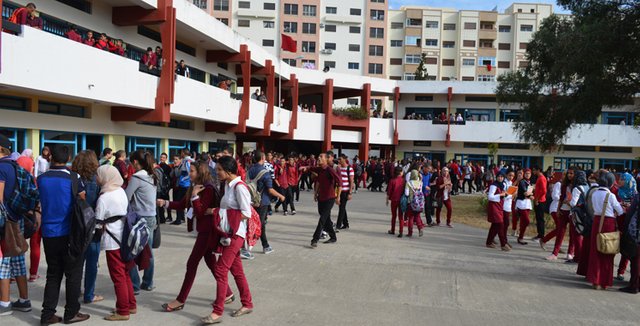Education is the foundation upon which the future of any nation is built, and in Morocco, the educational system is a testament to this belief. Moroccan schools are divided into three major cycles, each designed to provide students with a comprehensive and holistic learning experience. From the early years of primary school to the specialized fields of higher education, the Moroccan education system aims to equip its students with the knowledge and skills necessary to thrive in an ever-changing world.
Primary Cycle (Year 1 to Year 6):
The journey through the Moroccan education system begins with the primary cycle, which spans from Year 1 to Year 6. This foundational stage is crucial for young learners as it lays the groundwork for their academic and personal development. During these formative years, students are introduced to basic subjects such as Arabic, French, mathematics, science, and social studies. Emphasis is also placed on fostering creativity, critical thinking, and communication skills. Additionally, students are introduced to the rich cultural heritage of Morocco, promoting a sense of national pride and identity.
Preparatory Cycle (Year 6 to Year 9):
As students complete the primary cycle, they progress to the preparatory cycle, covering Year 6 to Year 9. This stage marks a significant transition, as students delve deeper into subject matters and begin to explore a broader range of disciplines. The curriculum expands to include subjects like literature, physics, chemistry, history, and foreign languages. Practical skills and problem-solving abilities are also honed through hands-on activities and projects. The preparatory cycle plays a pivotal role in shaping students' academic interests and guiding them towards their chosen fields of study.
High School Cycle (Year 10 to Year 12):
The final phase of the Moroccan education system is the high school cycle, which spans from Year 10 to Year 12. At this stage, students are required to select a specific academic track based on their interests and aspirations. The options include scientific, technical, and literary streams, allowing students to focus on subjects that align with their desired career paths. The curriculum becomes more specialized, preparing students for the challenges they will face in higher education and beyond. In addition to academics, extracurricular activities and community involvement are encouraged to foster well-rounded individuals.
Higher Education: Universities of Diverse Fields
Upon successful completion of the high school cycle, Moroccan students have the opportunity to pursue higher education in various fields. The country boasts a number of esteemed universities and institutions offering degrees in disciplines such as engineering, medicine, law, arts, social sciences, and more. The pursuit of higher education allows students to gain advanced knowledge and expertise in their chosen fields, preparing them to become professionals contributing to society and driving progress.
The Moroccan education system is a well-structured and comprehensive journey that takes students through three major cycles: primary, preparatory, and high school. From the early years of foundational learning to the specialized focus in high school and beyond, this system aims to equip students with the skills, knowledge, and values they need to excel in their chosen fields and become responsible and active citizens. With its diverse range of higher education opportunities, Morocco's commitment to education continues to foster a brighter future for its youth and the nation as a whole.
